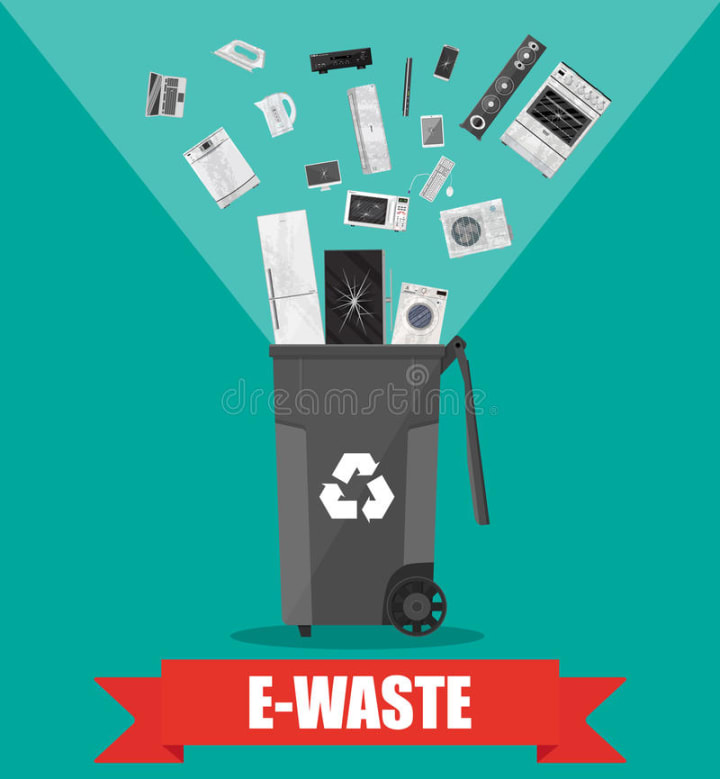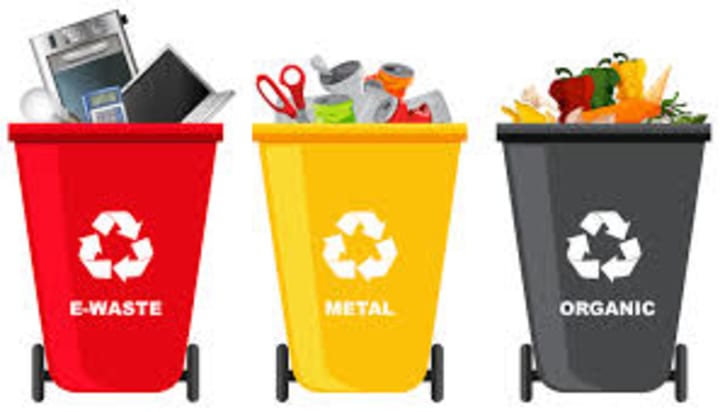How to Develop a Long-Term E-Waste Management Plan for Your Business
How to Develop a Long-Term E-Waste Management Plan for Your Business

In today's technology-driven world, businesses generate a significant amount of electronic waste (e-waste) every year. E-waste contains hazardous materials such as lead, mercury, and cadmium, which can harm the environment and human health if not disposed of properly. Therefore, developing a long-term e-waste management plan is crucial for businesses to reduce their environmental impact, comply with e-waste disposal regulations, and promote sustainable e-waste management. In this article, we will discuss how to develop a long-term E-waste management Company plan for your business.
Assess Your Current E-Waste Management Practices
Before developing a long-term e-waste management plan, it is essential to assess your current e-waste management practices. Evaluate how much e-waste your business generates, how you currently dispose of it, and whether you comply with e-waste disposal regulations. This assessment will help you identify areas for improvement and develop a long-term e-waste management plan that meets your business's specific needs.
Develop E-Waste Reduction Strategies
The first step in developing a long-term e-waste management plan is to develop e-waste reduction strategies. These strategies aim to minimize the amount of e-waste your business generates by reducing unnecessary purchases, promoting responsible disposal, and encouraging e-waste recycling. Some e-waste reduction strategies include:
Purchase durable, repairable, and upgradable electronics to prolong their lifespan.

Donate or resell functional electronics to reduce e-waste.
Implement a buy-back program to incentivize customers to return their old electronics for recycling.
Provide training and resources to employees to promote responsible e-waste disposal.
Partner with E-waste Recycling companies to recycle e-waste responsibly.
Implement E-Waste Recycling Programs
Implementing e-waste recycling programs is another critical component of long-term e-waste management. Recycling e-waste reduces environmental pollution and conserves natural resources by recovering valuable metals and materials from discarded electronics. Some tips for implementing e-waste recycling programs include:
Work with certified e-waste recycling companies to ensure responsible recycling practices.
Provide e-waste recycling bins at your business premises for employees to dispose of their e-waste.
Educate employees and customers about the importance of e-waste recycling and the proper disposal methods.
Host e-waste recycling drives to collect e-waste from the community.
Adopt E-Waste Management Best Practices
Adopting e-waste management best practices is crucial for businesses to ensure they dispose of e-waste responsibly and comply with e-waste disposal regulations. Some e-waste management best practices include:
Ensure all e-waste is properly labeled and stored before disposal or recycling.
Work with certified e-waste management companies to ensure responsible disposal practices.
Keep accurate records of all e-waste disposed of or recycled.
Develop a contingency plan for emergencies, such as spills or leaks during e-waste disposal or recycling.
Comply with E-Waste Disposal Regulations
Complying with e-waste disposal regulations is crucial for businesses to avoid fines, legal liability, and negative publicity. Different countries and states have different e-waste disposal regulations, and it is essential to understand and comply with them. Some e-waste disposal regulations include:
Prohibition of landfill disposal of e-waste.
Requirements for e-waste recycling and disposal.

Obligations for manufacturers and retailers to collect and recycle e-waste.
Fines and penalties for non-compliance with e-waste disposal regulations.
Conclusion
In conclusion, developing a long-term e-waste management plan is crucial for businesses to reduce their environmental impact, comply
with e-waste disposal regulations, and promote sustainable e-waste management. By assessing your current e-waste management practices, developing e-waste reduction strategies, implementing e-waste recycling programs, adopting e-waste management best practices, and complying with e-waste disposal regulations, you can develop a comprehensive long-term e-waste management plan that meets your business's specific needs.
It is also important to remember that sustainable e-waste management is not only beneficial for the environment but can also provide economic benefits for your business. Recycling e-waste can recover valuable materials and reduce the need for raw materials, leading to cost savings and increased revenue. Additionally, promoting responsible e-waste disposal practices can improve your business's reputation and attract environmentally conscious customers.
Therefore, it is essential to take proactive steps to develop a long-term e-waste management plan for your business. By doing so, you can contribute to a more sustainable future while also benefiting your business's bottom line.
About the Creator
ewasterecycle1
Eco-friendly disposal of electronic waste made easy! Find the best e-waste recycling near you. We offer responsible E-Waste Management Services in Delhi and across India.






Comments
There are no comments for this story
Be the first to respond and start the conversation.